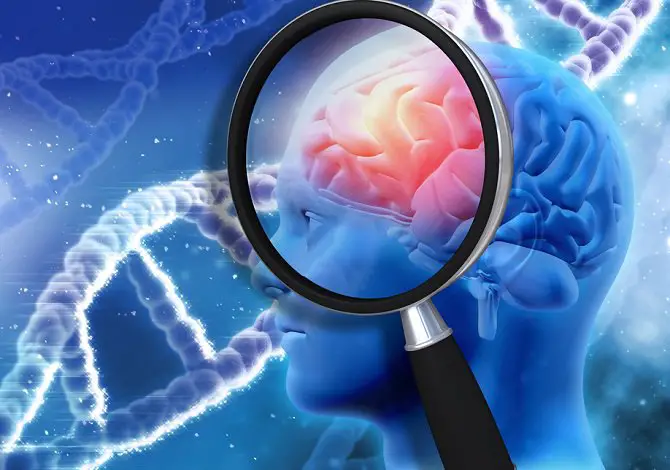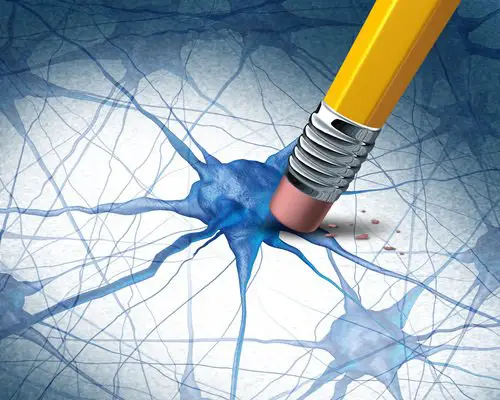Alzheimer’s is a disease localized to the brain that causes progressive loss of memory, cognition and incoherence in sending motor signals (movement) to the rest of the body. It is a normal ailment with age. Since it can happen to anyone, today we would like to show you the signs so you can discover how to know if you have Alzheimer’s or if you are showing the first symptoms.

According to the Alzheimer Association, this disease is the number one cause of dementia in people older than 65. In specific terms, it affects more than 44 million people in the world, and it is estimated that in 2050 there will be 135 million people affected by it.
What does Alzheimer’s do to the brain?
From a biochemical point of view, Alzheimer’s causes the death of neurons (which already can’t regenerate) in the brain. Their decreasing numbers cause the progressive shrinkage of the brain as well as all of its functions. We mustn’t forget that neurons are the signal transmitters for the rest of the body, they are the messengers of orders from the brain, and if they aren’t there, the central nervous system doesn’t send all of the signals and motor coordination is significantly lost.
Signs to know if you have Alzheimer’s
These are some of the main signs that can indicate that you are suffering from Alzheimer’s, although they can be similar to senile dementia, memory problems or even arteriosclerosis.
Solving problems is more difficult
This is one of the characteristic signs of Alzheimer’s. As days and weeks pass, cognitive problems that once were simple to solve now require greater effort. Following a recipe in the kitchen, doing an arithmetic problem, and other similar tasks become complicated and even impossible to figure out.
Changes in memory
This point covers different aspects such as forgetting events, recently learned information, and dates. These are the first and most well-known signs of this disease. With time, the person begins to depend on notepads, agendas, schedules in smartphones and reminders in various places at home.
Conversation is incoherent
Changes in the brain caused by Alzheimer’s can cause variation in the fluidity of speech. If this disease advances more on the left side, the person will be unable to clearly express their thoughts. The language area is located on the left side and pronunciation is performed on the right side of the brain. When the disease has progressed too much, the person loses the ability to express him or herself.
As we have mentioned, the disease appears starting from 65 years of age, but if you have a family history, it can show up as early as 40 years old. But this is an advantage because you can implement some activities to prevent its appearance, eat several foods that contain Omega 3 for example or do activities to improve brain capacity.

Disorientation with time and place
Along with other symptoms, having Alzheimer’s causes loss of orientation in time; the person doesn’t know what day it is and if they know, they forget immediately. The places they have passed by all of their life are now unfamiliar, and sometimes they go somewhere and don’t know how they got there.
Vision is affected
Shades of colors are no longer perceived normally, it becomes difficult to read, images get mixed up with other parts and distraction comes immediately. Furthermore, the eyes are damaged by dryness from trying to keep them open for long periods of time.
Good judgment decreases and mood changes
Making correct decisions becomes a problem. We frequently see people who suffer from Alzheimer’s giving money away, they are bothered by decisions that benefit them, they don’t enjoy relaxing activities, and similar things.
Tips to prevent Alzheimer’s
- Socialize: the act of talking stimulates the synaptic connection and the myelin covering (necessary for signals to pass through them), and in this way they will be stronger.
- A healthy diet: you have to take care of this, especially if you are over 40 years old. Try to include Omega 3 and antioxidants; both components help the brain. Avoiding trans– and saturated fats is also advisable.
- Exercise: performing physical exercise decreases blood pressure and relieves stress. At the same time, blood flow to the brain increases and this translates to better activity in both hemispheres.
